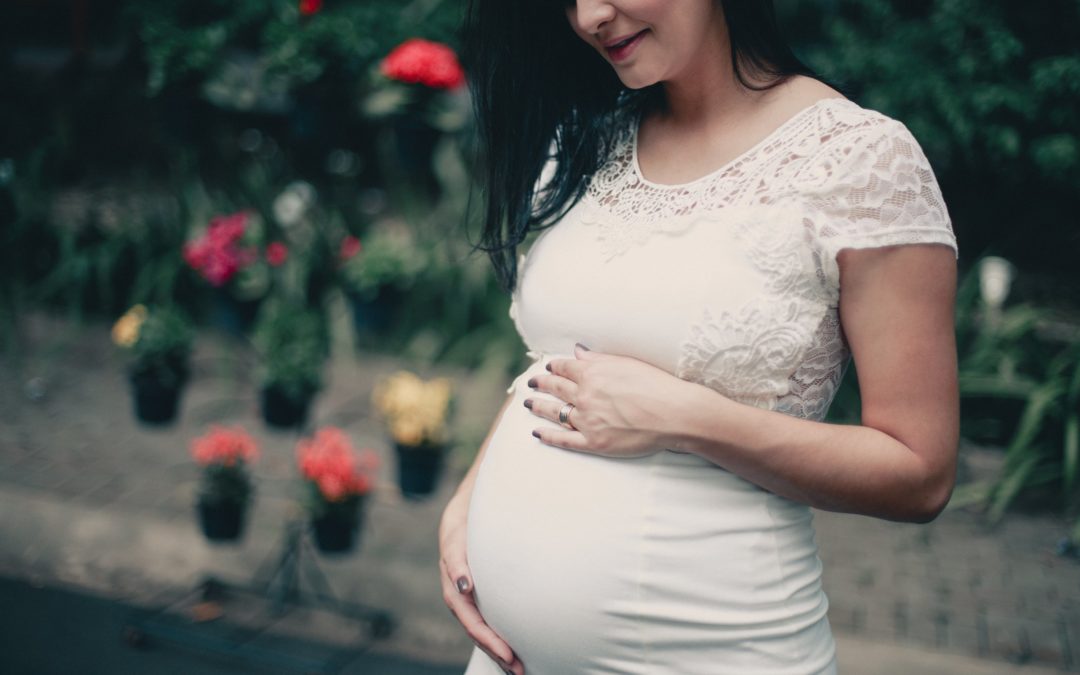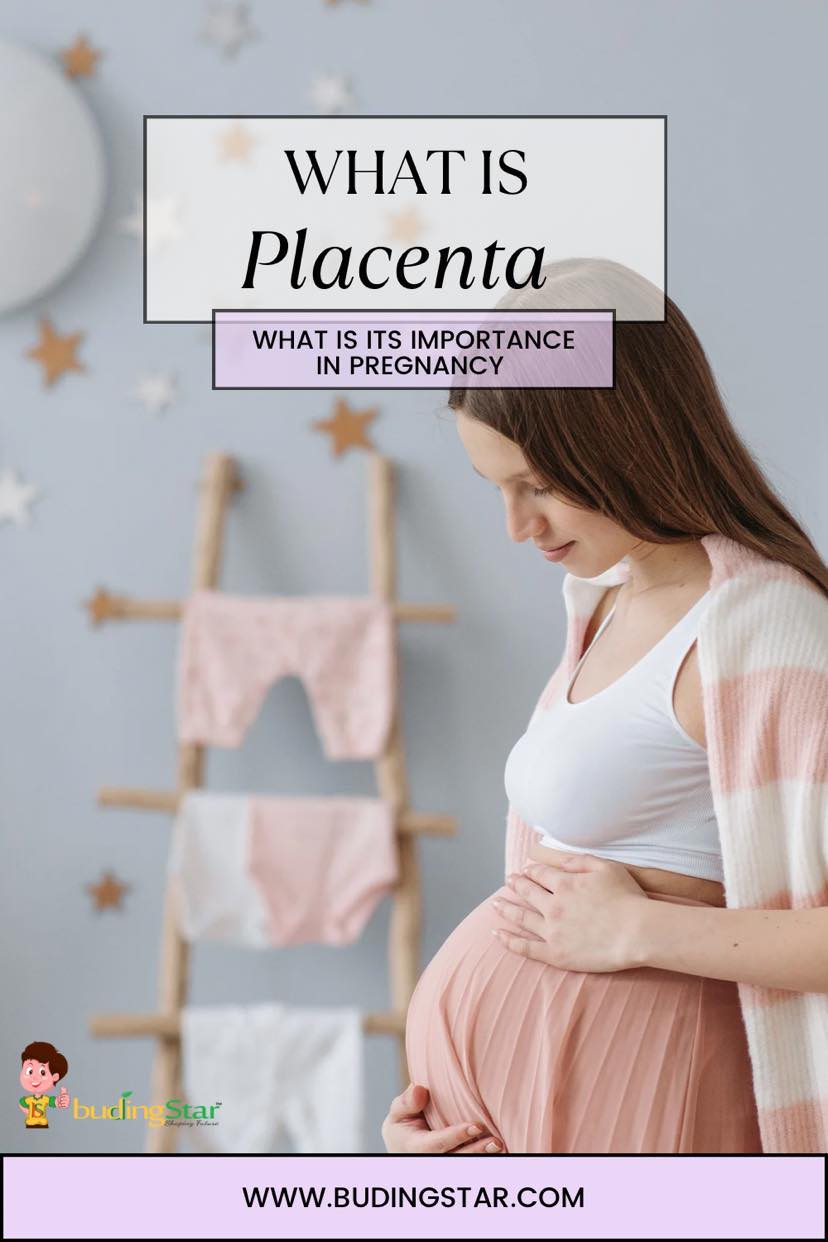The placenta is an organ temporarily formed in the uterus during pregnancy. This organ connects the baby to the mother’s womb. The baby is connected to the placenta with the help of a cord called the umbilical cord. The umbilical cord acts as the baby’s lifeline during pregnancy.
What is a Placenta in pregnancy?
If you are wondering what placenta means, the placenta is developed in the womb after conception and is attached to the wall of the mother’s uterus. It gets attracted to the uterine wall of the mother’s womb, which helps provide the baby with nutrients and oxygen. It functions vastly during the nine months of pregnancy and is considered the baby’s lifeline.
Types of Placenta in Pregnancy
Find out the four most common types of placenta in pregnancy. Scroll below to understand their positions and potential impacts on your pregnancy journey.
- Posterior Placenta: This means the placenta is located on the back side of the uterus. It’s a common position and usually doesn’t cause any problems during pregnancy.
- Anterior Placenta: This refers to the placenta being on the front side of the uterus. Sometimes it can make it a bit harder to feel the baby’s movements from the outside, but it’s usually not a cause for concern.
- Fundal Placenta: This means the placenta is attached to the top of the uterus. It’s a good position because it allows for good blood flow to the baby.
- Left/Right Lateral Placenta: This indicates whether the placenta is on the left or right side of the uterus. It doesn’t usually have a big impact on the pregnancy, but doctors might take note of it during ultrasounds.
Functionality Of Placenta in Pregnancy –
Understanding the functionality of the placenta in pregnancy is very important for a to-be-mother. It helps her comprehend its pivotal role as the lifeline between the mother and the developing fetus, facilitating nutrient exchange, oxygenation, and waste removal for the growing baby.
- The placenta in pregnancy time nourishes the baby with adequate nutrients and supplies oxygen to the baby.
- Eliminates carbon dioxide and harmful waste that affects the baby.
- The placenta in pregnancy stage produces a hormone that is necessary for the baby to grow.
- This is helpful for the transmission of immunity from the mother to the baby in the womb.
- The placenta development starts after a fertilized egg gets attached to the uterus around seven to ten days after conception. The placenta development proceeds throughout the gestation to help the baby in the womb. The placenta is a disc of bumpy tissue rich in blood vessels and seems to be dark red at term. The placenta commences as a few cells and evolves to be many inches long.
- Most of the mature placental tissue is brought up by blood vessels. They attach with the baby through the umbilical cord and tribute throughout the placenta disc like the stalks of a tree.
- The placenta has two sections: the side attached to the uterus and the side closest to the baby. The side attached to the uterine wall of the uterus is a deep reddish blue color, while the side facing the baby is gray.
- The placenta comprises primarily blood vessels encompassed within arrangements called “villi.” The blood vessels attach to the baby’s bloodstream with the help of the umbilical cord. The rest of the placental tissues largely associate the villi with the umbilical cord and permit the mother’s blood to cleanse the villi, supplying the baby with nutrients and oxygen.
- The placenta during pregnancy starts its hormone production when the first trimester ends. Till time, the corpus luteum addresses most of the hormone secretion. Many people’s first-trimester signs of sickness and weariness go out once the placenta is put up with in the second trimester.
- The placenta enables the baby alive and wholesome during pregnancy. Mother blood passes through the placenta and furnishes oxygen, maintains glucose, and nutrients to the baby through the umbilical cord.
- The placenta can furthermore filter out destructive waste and carbon dioxide from the baby’s blood. The placenta during pregnancy facilitates the exchange of oxygen and nutrients between the bloodstreams of the mother and her baby without ever blending them. Hence they function as your baby’s lungs, kidneys, and liver till they are born.
- When the delivery due is close, the placenta accesses antibodies to the baby to kick start its immunity. This immunity attaches to the baby for the first several months of life.
- The placenta in pregnancy time stimulates several important hormones like lactogen, estrogen, and progesterone throughout pregnancy. These pregnancy hormones are useful to both the mother and her baby. For instance, the placenta stimulates a hormone that quells milk production at the time of pregnancy.
Also Read: Pregnancy Diet That You Should Follow
Different stages of Placenta During Pregnancy
Learn about the 5 stages of placental development during pregnancy and how they affect foetal growth and maternal health.
Formation: In the early stages of pregnancy, the placenta begins to form as cells from the embryo and cells from the mother’s uterus come together and grow into a structure that will nourish and protect the developing foetus.
Implantation: The placenta attaches to the wall of the uterus, allowing it to receive nutrients and oxygen from the mother’s bloodstream and pass them on to the foetus.
Growth: As the pregnancy progresses, the placenta grows larger and develops blood vessels to support the increasing needs of the growing foetus.
Maturation: By the later stages of pregnancy, when placenta develops fully mature, with a network of blood vessels that exchange nutrients, oxygen, and waste products between the mother and the foetus.
Delivery: The placenta after birth is expelled from the uterus in a process called childbirth, completing its role in supporting the pregnancy.
Importance of Placenta During Pregnancy
- Placenta is very essential during pregnancy, for the growth of the baby in the womb. The placenta provides nutrients, antibodies, water, and oxygen for the baby which is important for their growth. When the blood flows in the uterus of the mother, the placenta takes the nutrients from the mother and supplies them to the growing baby.
- The placenta in pregnancy stage takes these elements across the amniotic sac via the umbilical cord that attaches the placenta to the baby and then enters into the baby’s blood.
- The placenta aids in eliminating all the waste products from the baby’s body. Sometimes there is a buildup of carbon dioxide in the baby’s body that needs to be eliminated. The placenta helps to pass the toxins back to the mother’s blood.
- The important thing for the baby’s growth is immunity. But they lack this in their womb and might get an infection. So the placenta helps as a barrier for the virus. The placenta prevents the virus from entering the body and also makes sure it does not enter the bloodstream of the baby and viruses are treated as foreign bodies.
Also Read: Tips To Stay Healthy In Your Pregnancy
Factors Affecting the Health of The Placenta during Pregnancy
Numerous factors can affect the health of the placenta they are as follows
- Problems may arise due to age. Older women, especially after 40 years, may face some problems.
- The placenta is affected if the fluid-filled sac known as the amniotic sac breaks or leaks before even the labor begins.
- Pregnant women with high blood pressure can affect the placenta.
- There are chances of the placenta getting affected if the woman is carrying more than a baby.
- History of surgery in the uterus such as c-section, and removal of fibroids can also damage the placenta.
- Women who smoke or use cocaine have higher risks of placenta getting affected.
- Pregnant women who had risks during their previous pregnancy can also get affected in their placenta.
- Accidents in the abdomen can also increase the risk of the placenta being affected. This increases premature separation of the placenta which is called placenta abruption.
- If any condition causes blood clots in pregnant women can increase the risk of placenta problems.
Conclusion
The placenta helps in the growth of the baby during pregnancy by removing the excretory products from them and helping them to have a comfortable environment. Since they are attached to the uterine wall, the placenta is delivered after the baby is delivered whether it is a normal delivery or c-section. Read more blogs for pregnancy and child-care at Buding Star.
FAQs on Placenta in pregnancy
1. What happens if the placenta is low?
If the placenta is low in the uterus, it’s called placenta previa. This means it’s close to or covering the cervix. It can cause bleeding during pregnancy, especially later on.
2. What are the symptoms of a bad placenta?
Symptoms of a problematic placenta might include:
- Heavy bleeding during pregnancy.
- Severe abdominal pain.
- Less foetal movement than usual.
- High blood pressure.
- Slower than normal growth of the baby.
3. Can complications arise with the placenta during pregnancy?
Yes, complications with the placenta can happen during pregnancy. Some common complications include placenta previa (when the placenta is low), placental abruption (when the placenta separates from the uterus too early), and placenta accreta (when the placenta attaches too deeply into the uterine wall). These complications can sometimes cause bleeding, problems with the baby’s growth, or difficulties during delivery.
More Blogs To Read
7 Pregnancy Tips To Consider For An Expecting Mom
Tips To Make Your Pregnancy Easier And Even More Beautiful
5 most useful things to be done during pregnancy!!
Top 19 Symptoms of Baby Boy During Pregnancy
Top 20 Symptoms of Baby Girl During Pregnancy
- Baby Monitors with Noise Monitoring: How They Work and Why They Matter - October 2, 2025
- Attachment Parenting Guide: Principles, Practices, and What to Expect - September 9, 2025
- Understanding Your Baby’s Cry: A Parent’s Mini Guide - June 23, 2025
- Bottle vs. Breastfeeding: What Works for You and Your Baby - June 18, 2025
- 10 Yoga Poses For Kids at Home: Benefits Of Yoga For Kids - June 12, 2025
- Parenting Guide to Child Development: Key Milestones from Birth to 10 Years - June 4, 2025
- Summer Vacation Plans Ideas with Kids - May 27, 2025
- Nutritious Dried Fruit Treats for Toddlers (16–24 Months) - May 25, 2025
- Importance of Screen Time Management for Kids - May 24, 2025
- The 6 Most Common Pregnancy Concerns First-Time Moms Have - May 23, 2025














